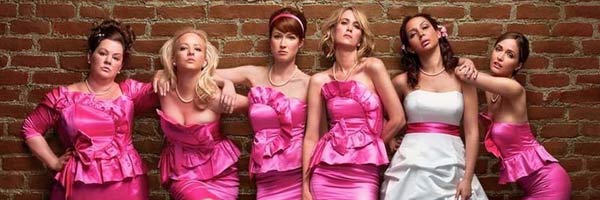We are failing the Bechdel Test
We sit here in Britain, looking wistfully north, dreaming of how much better our lives would be if we lived in the beautiful land of the blondes. If you’re a woman, you probably also dream of how much better your life would be if you lived in the number one most ender equal country in the word, according to the 2011 Gender Inequality Index.
The thing is the Swedes aren’t just great at being cool. The Swedes are also notoriously bra at being equal. No particular surprise, then, that they have come up trumps and rattled the masculine pride of the film world with their new rating system, the Bechdel test, a means by which they intend to rate films according to their representation of women. Films will be given the seal of approval only if meeting three categories:
1. There are two or more female characters (who are named)
2. These two female characters talk to one another
3. They talk to one another about something other than a man
I imagine the Swedes (sitting in a hot tub, naked apart from knitted bobble hats, grazing on a plate of meatballs) discussing this new rating system.
“How difficult can it be, ja?”
Well, my lovely blonde friends: very. Most mainstream films released in the past few months will necessarily fail, sadly as do the entire Lord of the Rings trilogy, all the Star Wars movies, The Social Network, Pulp Fiction and all but one of the Harry Potter movies.
Unfortunately, the failure of the Harry Potter series to match the requirements of the Bechdel Test highlights the test’s greatest downfall: any scientific formula imposed on works will undoubtedly fail to always do those works justice. In this case, Luna Lovegood never does ring up Hermione and say “Hey sister, fancy grabbing a pint of butterbeer in Hogsmeade this weekend? Bring Lavender Brown, we’ll have a day just us girls. And by the way, all boy talk is BANNED!”, and this means all Hermione’s constant achievements in academia, feminism and world-saving (including that punch) go unrewarded.
So, despite the fact that Ms Granger is the primary reason I have grown unashamed and comfortable in my own geekiness, the Harry Potter series do not receive the Bechdel stamp of approval, while Julie and Julia (a film about women cooking?!), does. Are there faults in the logic? Ja. Are there unjust failures, and unworthy passes? Ja. But, above all, is it still a positive addition to the world of film? You bet your Swedish meatballs it is.
There have been other criticisms. There’s a really fun-sounding gal in Sweden, who, when not at her day job as a physicist, runs a blog on how gender mad Sweden has gone (she’d heard her and all her female Swedish friends were the world’s closest to getting equal with men and she just thought “Enough with this madness!”), and has said that, rather than complain about the films, the Swedes should just make a load themselves with tons of women in, and then we wouldn’t have a problem. Well, as they may or may not say in Sweden, “bra idé, idiot”. She, among with many other Bechdel critics, seem to have completely missed the stunning subtlety and beautiful elegance with which her people go about this gender equality business. The Swedes are not attacking these films for being rubbish with women. They are not banning them, they are not complaining about them, they are not even recommending people don’t watch them. They are simply assessing them – scientifically, quietly, respectfully – and letting people know. Yes, this film is great, go see it, it’s on at this super awesome crazy cinema we just built in a knitted warehouse in Stockholm where the popcorn is made of frozen meatballs soaked in Absolut vodka. By the way, there aren’t many women in it and the ones it does show all just talk about penis. But no worries, it’s great anyway. Frid out.
On November 17th there will be a “SuperSunday” on the Viasat Film channel, during which the channel will show only movies passing the Bechdel test, sounds like a glorious day of feminist fun and frolics that every ten year old girl should be plonked in front of with a tub of Ben and Jerry’s and a pen and paper to make notes. Not only will they see some superb kickass female protagonists, but they will also gain from one of the more subtle benefits of the system: watching two women interacting with one another.
Whilst the importance of the female characters talking to one another about “something besides a man” is relatively self-explanatory, the importance of them talking to one another in the first place may easily be disregarded. Yet a progression from inane bitching and an inexplicable inability to portray female solidarity is exactly what we need. Otherwise we are setting our girls up to arrive at the age of 30 with no female friendships at all after they tell everyone at a party they thought Karen was impossibly stupid after she stuck her K on the wrong way round.
At the end of day, this is exactly the problem for our young girls: they can’t be what they can’t see. And if all they ever see, cinematically-speaking, is men, with the occasional woman doing her makeup, or lamenting that Brad didn’t call her, or being rescued because she couldn’t possibly have climbed out the tower herself, we leave them a gaping black hole in the place of “ambition” or “inspiration” or “career ideas”.


Comments